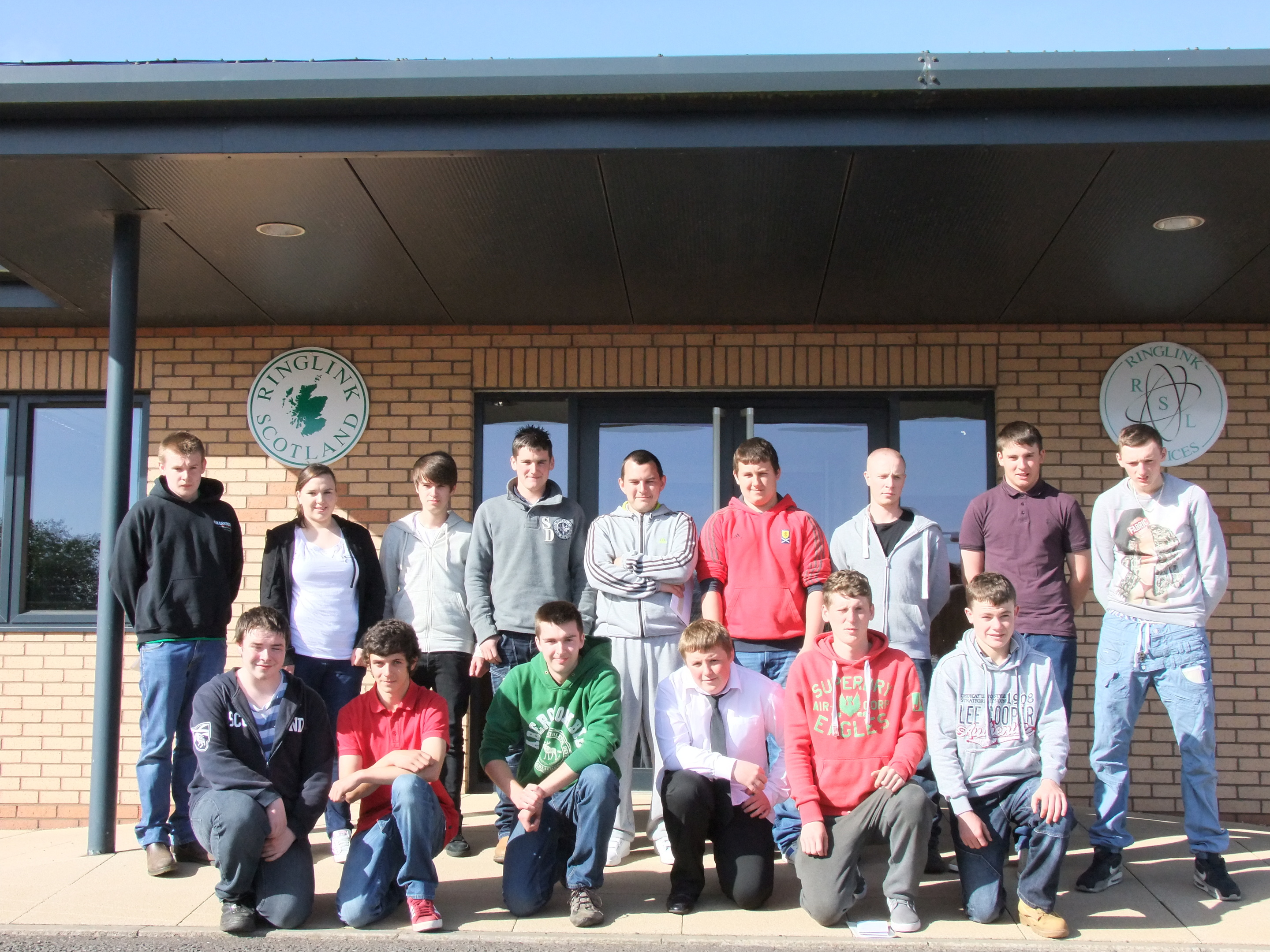A new batch of recruits has started an intern scheme at Scotland’s largest machinery ring.
Ringlink Scotland has increased the number of places on its land-based intern programme from six to 15 this year.
The scheme, which was launched last year, aims to give youngsters a broad overview of work in the rural sector through a programme of training and mentoring.
A total of 48 youngsters applied for the 15 intern places, and the scheme has extended beyond the Aberdeenshire region to include Morayshire and Tayside.
The latest batch of recruits started a two-week training and induction period on Monday, which will be followed by a six-month work placement with a host mentor farm.
The initial two-week training programme allows all interns to get to know each other while learning about various aspects of rural work.
These include first aid, health and safety, risk assessment, manual handling and a three-day basic tractor driving course.
The youngsters will also be given the chance to visit agricultural businesses including Origin Fertilisers, Angus Cereals and Grampian Growers, with the two-week period concluding with a two-day visit to the Royal Highland Show next week.
Laurencekirk-headquartered Ringlink, which has more than 2,800 members and a throughput of more than £45million, is one of the largest machinery rings in Europe.
It said the intern programme is predominantly made up of school leavers, aged 16 and 17, with a selection bias given towards those with a genuine interest in farming and the rural sector.
“For many years we have advocated the benefits of an entirely practical work-based programme and the internship programme provides this route,” said managing director Graham Bruce.
“This is a major step in our long-term aspiration to deliver a recognised method of training and development designed to encourage young people into the agricultural and associated industry.”
He said the scheme would not be able to run without the support of farmer mentors. A pool of 25 potential mentors were identified for this year’s scheme, with all successful applicants given training to help prepare them for the programme.
Jim Booth, the head of co-operative development at SAOS, said: “One of the keys to the success of the whole scheme is securing a pool of skilled and motivated mentors who are willing to take on a young person.
“There can be no greater reward than helping a young person at the start of their working life, by contributing to their success and encouraging them to achieve their full potential.”
Ringlink chairman Andrew Moir, who farms at Mains of Thornton, Laurencekirk, added: “It is really encouraging after such a highly successful pilot phase in the first year that phase 2 has started so positively and this now provides us with an excellent foundation to develop the scheme into a nationally recognised programme.”
